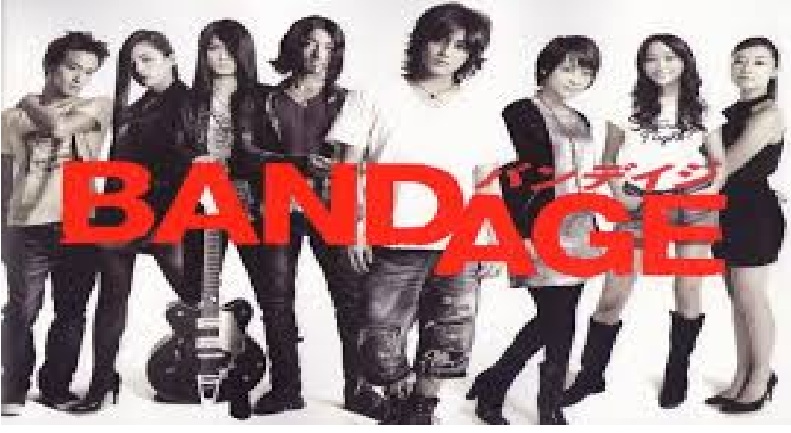One day, high school trainee Asako is welcomed by her buddies to go to a show by indie band Lands. She instantly ends up being infatuated with both the band and its lead vocalist Natsu. By mere coincidence, she becomes the band’s co-manager, and she quickly finds the hardships that exist within the music industry, regardless of developing a friendship with Natsu. When the band considers whether to leave artistic integrity behind for fortune and popularity, will Asako’s commitment to the band– and especially Natsu– be tested?
Every musical category increases with that of the times, each reaching heights of pure quality and likewise of extreme lows. For Japan, the early 1990’s were such a duration of supremacy for rock music as little indie bands came to prominence to rule the charts and sway Japanese listeners. A period consisting of imaginative spirits, small-town acts, and individuality, the period personified the rags-to-riches stories of how unknown musical groups might concern ultimately rule the airwaves and music shops– even if it was short lived. With inevitability rearing itself, the market soon proceeded to other forms of musical skills to fill the void. Time director Takeshi Kobayashi’s Bandage chronicles the experience of one such group throughout this duration as they make their method from local indie band to considerate fame, with all the possible pitfalls along the way.
Composed and produced by none besides auteur director Shunji Iwai, Bandage (a lively word representing the period where the film takes location– the “Band Age”) is an exceptional appearance into the music industry from the point of view of an indie band titled Lands. Thinking about the environment of the period at the time, the movie is adherent to the emotional as well as professional side of remaining in a band as they rise towards stardom. With lots of time devoted towards showcasing the efficiency of their music, Bandage dives rather much deeper to showcase both the political and innovative forces that clash with one another concerning the instructions of a band and the many components contributing to their future advancement. With heavy focus on the supervisory work that goes on behind the scenes, the movie highlights the significance of not only the music itself, but the business element of it. This provides Bandage as more than simply a film focusing on a particular band and their music– thus numerous films frequently do– however as a film happy to showcase the routes and adversities that take place in between a group of vibrant musicians as they shift towards becoming famous. Initially starting as group of friends, the movie comes up with the struggles they face with fame, love, and the ruthless market they live in.
With the film revealing both the individual and business side of being in a band, the film inserts a sense of wild bewilderment through the eyes of Asako, played by Kii Kitano. Provided her great acting ability within Eriko Kitagawa’s Halfway (2009)– not surprisingly, another movie produced by Iwai– Kitano relatively represents the eyes of the audience throughout this unstable duration within Japanese popular culture history. With the industry moving ever so fast, the rise to fame of a band can come rather rapidly– and without much time for preparation, especially worrying psychological stability. Kitano is extremely well here as the outsider looking– however likewise participating– in a market that can be as ruthless as it is satisfying. We can slowly begin to see her relationship with that of the band’s straw man Natsu (played here by Jin Akanishi, real-life member of the J-pop group KAT-TUN) as a symbolic representation of the market itself. The tumultuous relationship they share is rather reminiscent to the situational circulation of being an indie band at the time– unpredictable of the future and not quite sure where they fit in. Their relationship is played out rather well, and really provides a connection towards the audience as something authentic– primarily through their fascinating portrayals of people caught in the middle of a flurry of contradicting mindsets and feelings. Considering that this is Akanishi’s first acting role, he’s on par with Kitano in presenting believable characters revealing realistic outcomes.
In general, Bandage offers a very appealing look into an age in Japanese music history where indie rock bands made their mark. Despite happening throughout this period, the movie also produces an excellent picture into the difficult reality of in fact being in a rising band and its various aspects– from the price of fame to the challenges of developing material, the film provides the audience a fantastic insight into all of it. At its core though, Bandage narrates about the relationships one faces within this atmosphere and the method individuals develop and change along the method. For a directorial launching, Takeshi Kobayashi offers an excellent first impression, and along with a movie script composed by none aside from Shunji Iwai, the movie offers a practical portrait into the music service and all that includes it. With an appealing cast at the helm, terrific instructions, and interesting subject product, Bandage is maybe one the very best films to come along dealing with the Japanese music industry for rather a long time.


Recent Comments